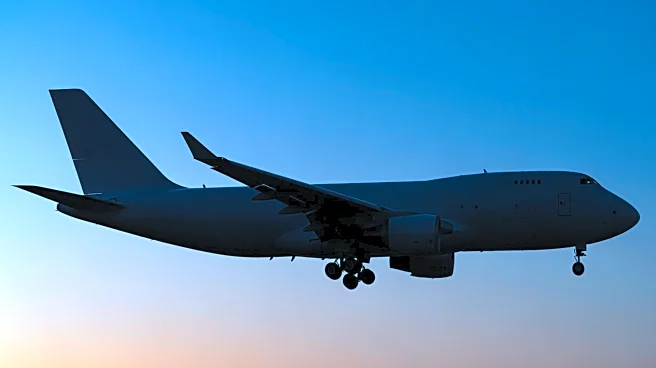What's Happening?
Fishermen in Trinidad and Tobago are expressing fear for their safety and livelihoods amid escalating tensions between the United States and Venezuela. The U.S. has increased its military presence in the Caribbean, conducting strikes on suspected drug vessels, which has raised concerns among local fishermen. They fear their boats could be mistaken for drug-smuggling vessels, putting them at risk of being targeted. The geopolitical conflict has also led to a decrease in fishing activities, as fishermen avoid deeper waters due to the heightened military presence. The situation is further complicated by Trinidad and Tobago's strategic location near Venezuela, making it a focal point in the regional tensions.
Why It's Important?
The conflict between the U.S. and Venezuela has significant implications for the Caribbean region, particularly for small nations like Trinidad and Tobago. The increased military activity threatens the livelihoods of local fishermen, who rely on the sea for their income. This situation highlights the broader impact of geopolitical conflicts on civilian populations and local economies. The tensions also underscore the challenges faced by small nations caught between larger powers, as they navigate complex diplomatic and security issues. The potential for misidentification and accidental targeting of civilian vessels raises concerns about the safety and security of non-combatants in conflict zones.
What's Next?
As tensions continue, there may be calls for diplomatic interventions to de-escalate the situation and protect civilian lives. Regional leaders, such as those from Barbados and St. Vincent and the Grenadines, have already appealed for dialogue to prevent further conflict. The international community may also play a role in mediating the dispute and ensuring the safety of affected populations. For the fishermen of Trinidad and Tobago, the hope is for a peaceful resolution that allows them to resume their livelihoods without fear of military intervention.









